What is a BBQ salmon rub? A BBQ salmon rub is a blend of spices, herbs, and sometimes sugar or salt applied to the surface of salmon before cooking. It enhances flavor, creates a delicious crust, and complements the natural sweetness of salmon. In this comprehensive guide, you'll learn everything you need to know about BBQ salmon rubs, including ingredients, usage techniques, top commercial products, and expert tips for perfect results every time.
Table of Contents
Introduction to BBQ Salmon Rub
A BBQ salmon rub is a blend of spices, herbs, and sometimes sugar or salt that's applied to the surface of the salmon before cooking. It adds depth, flavor, and a delicious crust. Think of it as the secret weapon for turning a simple piece of fish into a mouthwatering masterpiece.
While some people might think of rubs as something only for meats like brisket or ribs, they're just as powerful when used on seafood—especially salmon. The right rub can transform the natural sweetness of salmon into a savory, smoky, and slightly spicy experience that pairs perfectly with grilled vegetables, rice, or a refreshing salad.
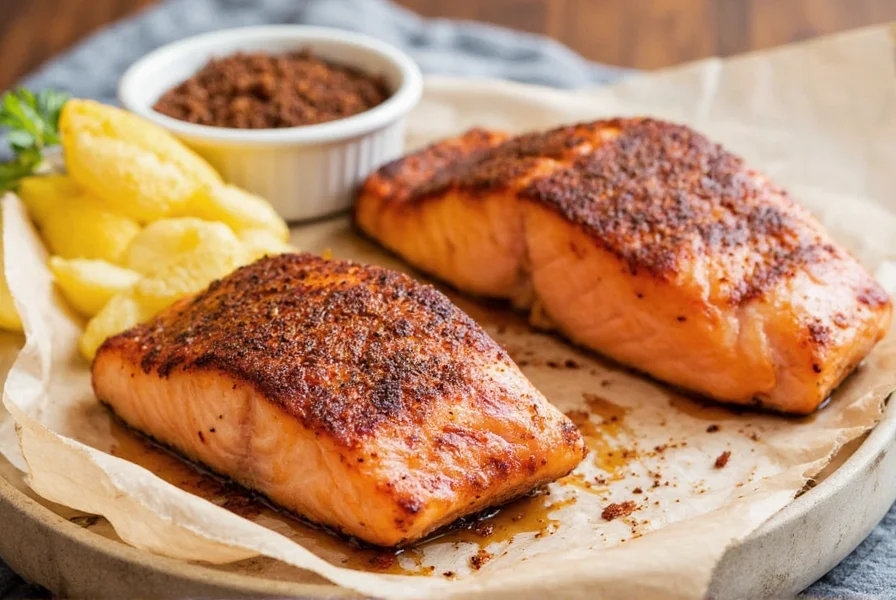
Key Ingredients in a BBQ Salmon Rub
Understanding the components of a great BBQ salmon rub is essential if you want to create your own or choose the right one. Here's a breakdown of common ingredients and their roles:
- Salt: Enhances flavor and helps draw out moisture, creating a better crust.
- Paprika: Adds color and a mild, smoky flavor. Sweet or smoked paprika can be used depending on the desired taste.
- Garlic Powder & Onion Powder: Provide a savory base and help build layers of flavor.
- Cumin: Adds warmth and earthiness, often found in Mexican or Southwestern-style rubs.
- Chili Powder: For those who like a little heat, chili powder gives a subtle kick without overpowering the fish.
- Brown Sugar: Adds sweetness and helps caramelize the surface, giving the salmon a glossy finish.
- Black Pepper: A must-have for a little bite and complexity.
Some commercial rubs may also include dried herbs like thyme, oregano, or rosemary for extra aroma and depth. The key is balance—too much spice, and you'll mask the natural flavor of the salmon; too little, and you'll miss out on the full experience.
How to Use a BBQ Salmon Rub
Using a BBQ salmon rub is straightforward, but there are a few tips to keep in mind to get the best results:
- Pat the Salmon Dry: Before applying the rub, make sure the salmon is dry. This helps the seasoning stick better and creates a better crust.
- Apply Generously: Use enough rub to coat the salmon evenly, especially on the skin side. Don't be shy—this is where the flavor really shines.
- Let It Rest: After applying the rub, let the salmon sit for at least 30 minutes (or up to an hour) so the flavors can penetrate the flesh.
- Grill or Bake: Once the rub is set, cook the salmon using your preferred method—grill, oven, or smoker. Aim for an internal temperature of 145°F (63°C) for perfect doneness.
For an extra touch, you can baste the salmon with a glaze while cooking. A mix of honey, mustard, and a bit of vinegar or citrus juice can add another layer of flavor and shine.
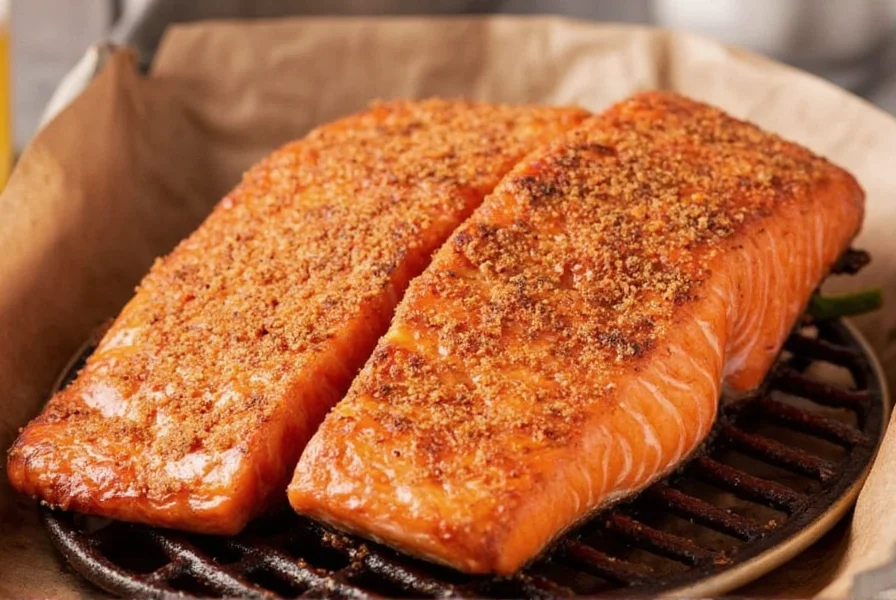
Top BBQ Salmon Rubs on the Market
| Product | Features | Best For |
|---|---|---|
| Mad Dog 327 BBQ Rub | Smoky, sweet, and spicy with a unique blend of spices | Those who love a bold, complex flavor |
| Smokehouse BBQ Rub | Lightly sweet with a hint of garlic and paprika | Beginners or those who prefer a milder option |
| McCormick Grill Mates BBQ Rub | Classic blend with a balanced mix of sweet and savory | Everyone from casual cooks to experienced grillers |
| Spicy Sweet BBQ Rub by The Spice House | Includes brown sugar, paprika, and a kick of cayenne | Those who enjoy a bit of heat with their flavor |
Each of these products has its own unique profile, so experiment to find what works best for your taste buds and cooking style.
Buying Guide for BBQ Salmon Rubs
Choosing the right BBQ salmon rub can be overwhelming with so many options on the market. Here's a quick guide to help you make an informed decision:
- Check the Ingredient List: Look for high-quality, recognizable ingredients. Avoid anything with excessive fillers or artificial additives.
- Consider the Flavor Profile: Do you want something sweet, smoky, spicy, or a combination? Choose a rub that aligns with your taste preferences.
- Read Reviews: Customer feedback can give you a good sense of how well a rub performs in real-world situations.
- Think About Occasions: Some rubs are great for backyard barbecues, while others are more suited for dinner parties or special occasions.
- Look for Versatility: A good rub should work well on other proteins too—like chicken, pork, or even vegetables.
If you're buying online, make sure the seller is reputable and offers good return policies. Also, consider the size—some rubs come in large containers that can last a long time, while others are perfect for small batches or gift-giving.
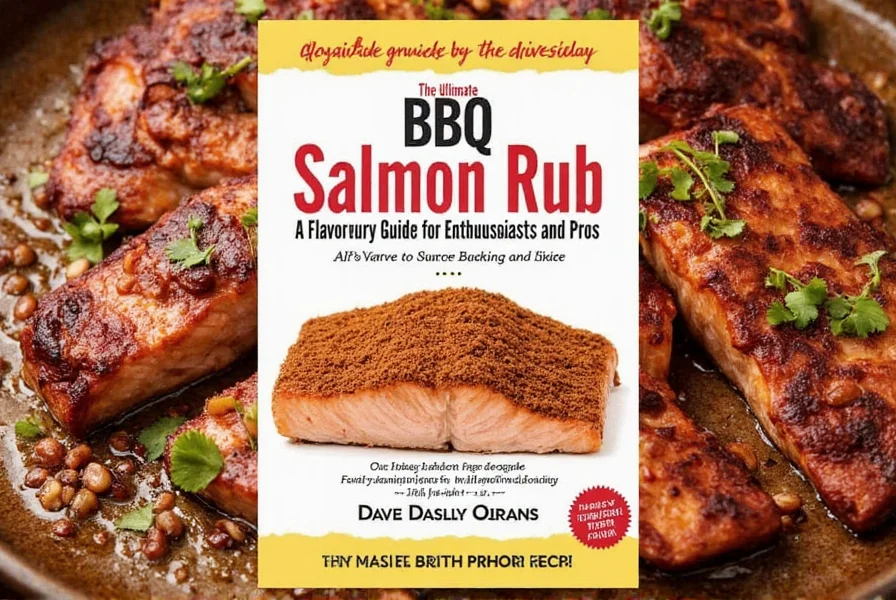
Pro Tips for Perfect BBQ Salmon
Even the best BBQ salmon rub won't save a poorly cooked fish. Follow these pro tips to ensure your salmon turns out perfectly every time:
- Use Fresh Salmon: Fresh salmon has a firmer texture and better flavor than frozen or old fish.
- Preheat Your Grill: A hot grill helps sear the salmon and lock in juices, preventing it from sticking or falling apart.
- Don't Overcook It: Salmon is done when it flakes easily with a fork and reaches an internal temperature of 145°F (63°C).
- Keep the Skin On: Cooking salmon with the skin on helps protect the delicate flesh and makes it easier to flip.
- Experiment with Pairings: Try different sides like grilled corn, roasted potatoes, or a fresh herb salad to complement the rub.
Remember, practice makes perfect. The more you cook with a BBQ salmon rub, the more you'll understand how to adjust it to your personal taste.
Frequently Asked Questions About BBQ Salmon Rub
How long should I let the BBQ rub sit on salmon before cooking?
For optimal flavor, let the rub sit on the salmon for at least 30 minutes, but no longer than 1 hour. This gives the salt time to penetrate slightly and the flavors to meld with the fish without breaking down the delicate texture. Unlike tougher meats that can handle hours of marinating, salmon's delicate flesh can become mushy if left with a rub for too long.
Can I use a regular meat BBQ rub on salmon, or do I need a specialized seafood rub?
You can use a regular BBQ rub on salmon, but you'll want to be more conservative with the application. Most meat rubs contain higher salt content and stronger spices that can overpower delicate salmon. If using a standard meat rub, apply about half the amount you would use on chicken or pork, and consider mixing it with a bit of brown sugar to mellow the flavor profile for the fish.
What's the best way to get the rub to adhere to salmon?
The key to getting rub to stick properly is moisture control. Pat the salmon completely dry with paper towels first, then lightly brush with a neutral oil like canola or grapeseed oil (not olive oil, which has a low smoke point). Apply the rub firmly, pressing it into the surface. The oil creates a "glue" for the rub to adhere to without adding moisture that would prevent proper searing.
Can I make my own BBQ salmon rub at home, and how long will it last?
Absolutely! A basic homemade BBQ salmon rub can be made with 2 tablespoons brown sugar, 1 tablespoon smoked paprika, 1 teaspoon garlic powder, 1 teaspoon onion powder, 1 teaspoon kosher salt, ½ teaspoon black pepper, and ¼ teaspoon cayenne (optional for heat). Store in an airtight container away from light and heat, and it will maintain optimal flavor for 3-6 months. The sugar helps preserve the rub longer than spice blends without sweeteners.
Does the type of salmon affect which rub I should use?
Yes, different salmon varieties pair better with specific rub profiles. Wild-caught salmon (like King or Sockeye) has a stronger, richer flavor that can handle bolder rubs with more spice and smoke. Farmed Atlantic salmon has a milder, fattier profile that works best with lighter, sweeter rubs that won't overwhelm its delicate taste. For King salmon, try rubs with coffee or cocoa notes; for milder Atlantic salmon, opt for citrus-enhanced or honey-based rubs.
Can I use a BBQ salmon rub for other types of fish?
Yes, but with adjustments. The rub works well on most firm-fleshed fish like tuna, swordfish, or mahi-mahi, though you may want to reduce the sugar content for these since they don't caramelize the same way salmon does. For more delicate fish like tilapia or cod, use about half the amount of rub and choose milder blends without heavy spices. The rub can also be fantastic on shrimp when combined with a bit of lemon zest.
Conclusion
A BBQ salmon rub is more than just a seasoning—it's a game-changer that can turn your salmon into a standout dish. Whether you're a beginner looking to expand your grilling skills or a pro wanting to refine your technique, understanding the basics of rubs and how to use them effectively is essential.
From choosing the right ingredients to experimenting with different blends, there's always something new to discover in the world of spices. So grab your favorite rub, fire up the grill, and get ready to impress your guests with a perfectly seasoned, juicy, and flavorful piece of salmon.
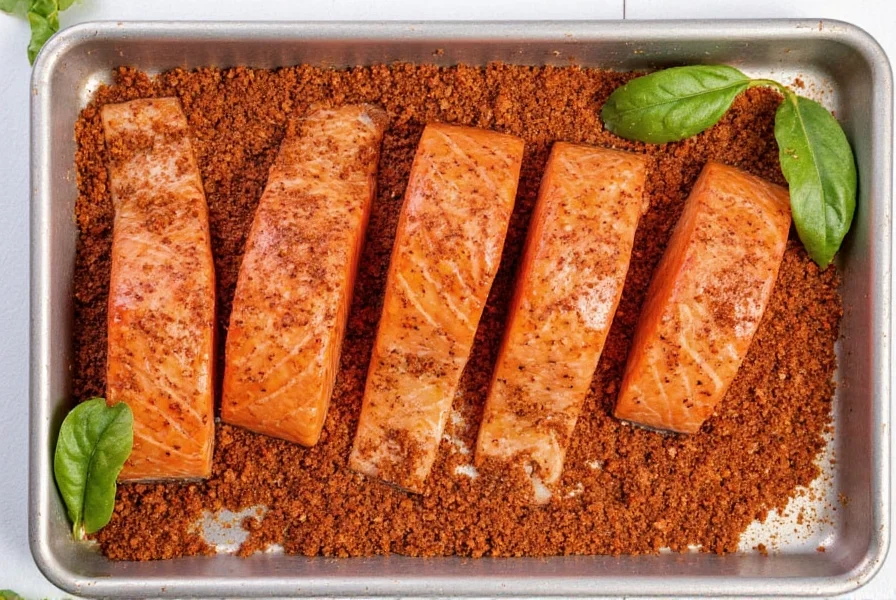

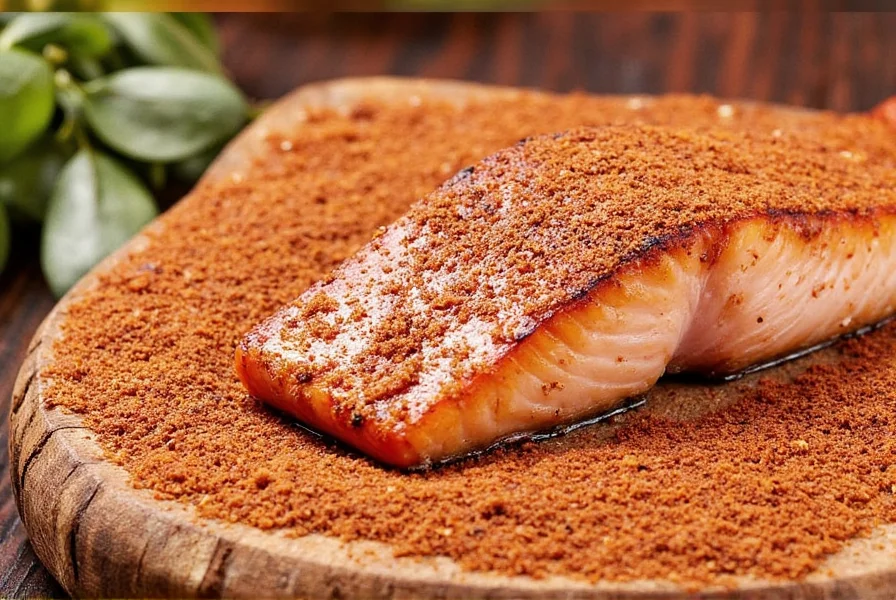









 浙公网安备
33010002000092号
浙公网安备
33010002000092号 浙B2-20120091-4
浙B2-20120091-4